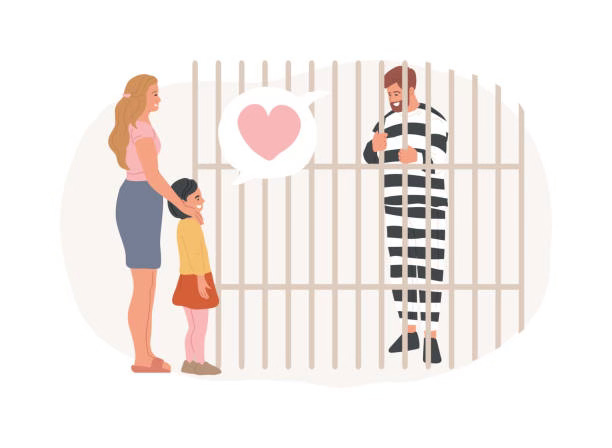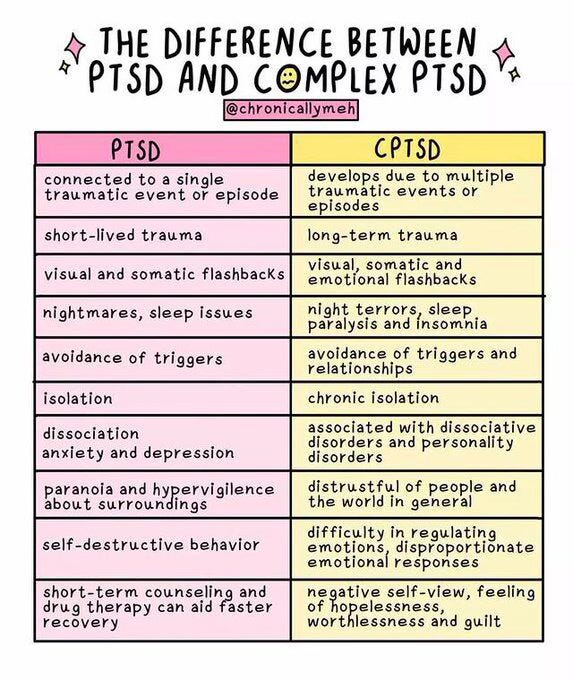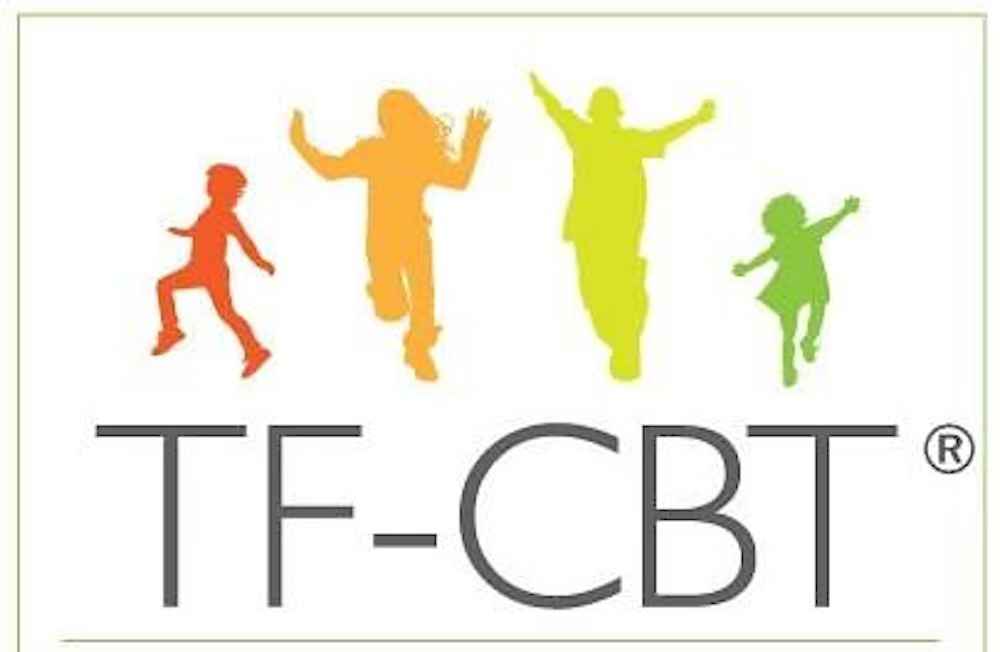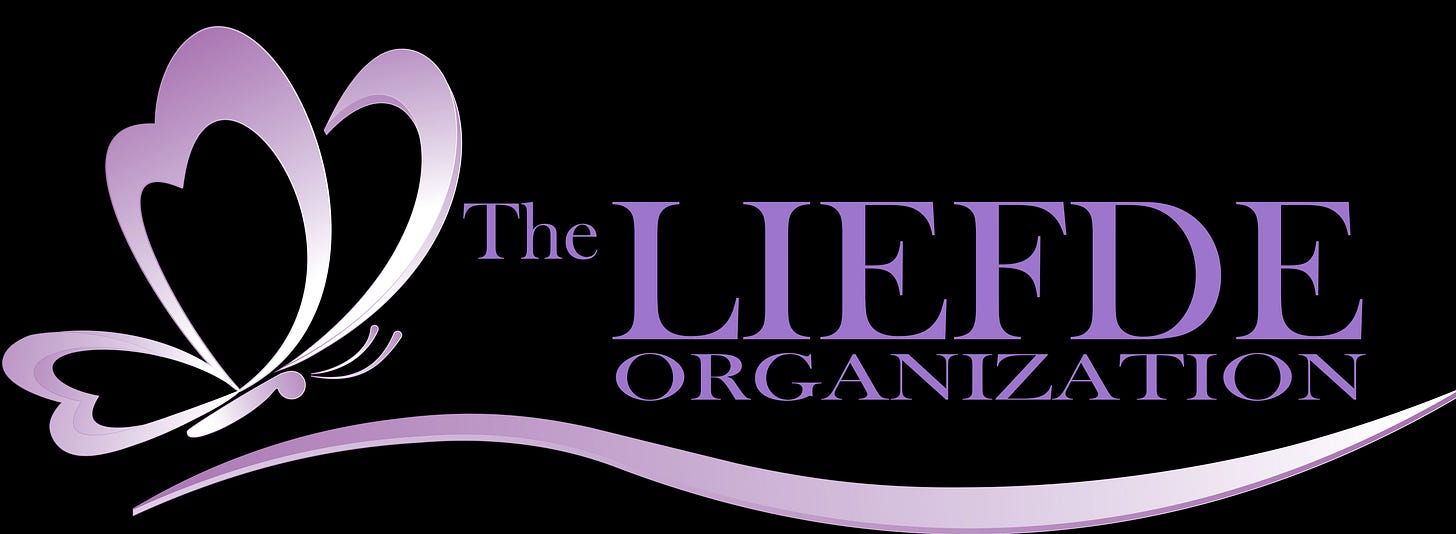Dear Dr. Barb,
I'm writing this letter with a mixture of confusion, anger, and deep pain, hoping you can help me understand the complexity of my family's tragic history. I've spent my entire life believing my father was a drug addict who murdered my mother during a drug-induced psychosis – a narrative that has defined my understanding of my family's destruction.
My father has been in prison since I was an infant. My grandparents raised me, always telling me that drugs had transformed my father into a monster who killed my mother during a violent, drug-fueled episode. I grew up with this story – a cautionary tale about the destructive power of substance abuse.
Recently, I've uncovered court documents and forensic reports that are challenging everything I thought I knew. The toxicology reports suggest a different narrative. While my father did have drugs in his system, the forensic evidence indicates a more premeditated act than random drug-induced violence.
This revelation is destroying everything I understood about my identity. Was my father not just a drug-addicted murderer, but something more calculated? The man I've only known through prison visits and filtered stories now feels like a complete stranger.
I'm haunted by conflicting emotions. I've spent years pitying my father, believing he was a victim of addiction who committed an unthinkable act while not in his right mind. Now, I'm wrestling with the possibility that the drugs might have been an excuse, not an explanation.
My memories are a minefield. I remember prison visits where he would cry, talking about how the drugs made him lose control. He would describe that night as a blur, a moment of chemical-induced madness. But what if those were just manipulative lies?
The psychological weight is overwhelming. How do I reconcile the father I thought I knew with this emerging truth? I've built my entire understanding of myself around this narrative of addiction and tragic circumstance. Who am I if that story is a lie?
I'm terrified of the genetic legacy. If his actions weren't purely drug-induced, what does that mean for me? Am I carrying some inherent capacity for violence? The fear of becoming like him is paralyzing.
My relationship with my grandparents feels tainted. Did they know more than they told me? Were they protecting me, or protecting his image? Every family story now feels like it needs to be re-examined, re-evaluated.
I'm experiencing a complete deconstruction of my identity. The foundations of my understanding of my family, my father, and myself are crumbling. I oscillate between rage, profound grief, and a numbness that terrifies me.
My current therapist suggested I might be experiencing complex PTSD, but I need more understanding. How do I process this level of uncertainty? How do I rebuild my sense of self when the story of my origin feels like a carefully constructed lie?
I need to understand. I need to know the truth, no matter how painful it might be.
Sincerely,
Daughter of Uncertainty
Dear Daughter of Uncertainty,
I want to acknowledge how challenging it can be to confront difficult truths about someone as important as your father, and how that can deeply affect how you see yourself. It’s completely natural to feel a mix of emotions: confusion, sadness, anger, or even betrayal. These feelings are valid and important to explore.
Please know that your father’s actions or history do not define who you are. You are your own person, with your own values, choices, and strengths. Understanding more about your past can be painful, but it can also be an opportunity for growth and self-awareness. It’s okay to take your time processing these feelings, and you don’t have to do it alone.
There are steps that you can begin taking that may help ease some of the emotions you are currently experiencing. I was happy to read that you are currently in therapy and commend you for taking this difficult step and not trying to cope with this alone.
I would like to start by providing some education about the important differences between complex PTSD (C-PTSD) and traditional PTSD. Traditional PTSD typically develops after a singular traumatic event, such as witnessing a fatal car accident or experiencing the events of September 11th, 2001. People suffering from traditional PTSD usually maintain their core identity because their focus remains on a specific trauma rather than experiencing changes to their sense of self over time, and it typically manifests with fear responses to specific triggering events.
Complex PTSD (C-PTSD) generally occurs after prolonged and/or repeated trauma, often taking place over multiple traumatic events that affect the survivor's core identity and can disrupt their fundamental belief system. It frequently includes deep-seated feelings of shame, guilt, and powerlessness, paired with emotional dysregulation and difficulty trusting others. The ongoing nature of the trauma in C-PTSD creates a more pervasive impact on the person's daily life and relationships, making recovery more complex.
Your therapist likely suggested C-PTSD as a possible diagnosis due to the betrayal of trust you are experiencing, the questions you have raised about your personal identity and authenticity within the world, and your strong desire to distinguish between truth and lies. If you were experiencing traditional PTSD, you might only have these feelings on the anniversary of your mother's death rather than struggling with them throughout the year, as the impact of discovering the truth about your father's actions has fundamentally altered your understanding of yourself and your past.
Therapeutic Approaches to C-PTSD:
There are things that can be done to help you work through this new narrative that you have discovered. If your therapist isn’t currently trained in these techniques, they should be able to refer you to someone in your area who is. Let’s go through a few therapeutic approaches to C-PTSD that may help you be able to navigate these intense emotions you are facing.
Narrative Reconstruction Therapy:
Narrative Reconstruction Therapy allows you to carefully examine and process both versions of your history. You will be able to create a new narrative that incorporates these difficult truths while emphasizing your own agency and resilience. This approach focuses on acknowledging that your identity exists independently of your father's actions and helps you explore how this new understanding can contribute to your growth rather than define your future.
What to Expect in a Narrative Reconstruction Therapy Session:
1. Initial Story Documentation:
Write both versions of the story.
Identify emotional attachments to each narrative.
List core beliefs formed from the original story.
*Example Exercise:
Two-Column Reality Mapping
Column 1: What I Believed: My father was under the influence of heavy narcotics when he murdered my mother in a fit of rage.
Column 2: What I Now Know: My father was not heavily intoxicated at the time of my mother’s murder.
2. Emotional Processing:
Grieving the loss of the idealized father.
Acknowledging anger at the deception.
Processing shame about believing the lies.
Validating childhood coping mechanisms.
*Example Exercise:
Letter Writing Series
Letter to your childhood self.
Letter to the father you grew up believing.
Letter to the father you now understand him to be.
Letter to your current self.
3. Identity Reconstruction:
Personal strengths that emerged despite/because of the situation.
Values developed independently of the false narrative.
Authentic aspects of self versus reactive formations.
*Example Exercise:
Truth and Growth Inventory
What parts of me are truly mine?
What strengths did I develop?
What values do I choose to keep?
4. Creating New Narrative:
Acknowledges both realities.
Emphasizes personal agency.
Incorporates lessons learned.
Creates meaning from experience.
*Example Framework:
"While I grew up believing a story about my father’s drug addiction, I now understand my father chose to create a false narrative. This deception, though painful, helped me develop strong qualities of resilience, truth-seeking, and emotional independence. I am not defined by his choices but by how I've grown through understanding the truth.”
5. Future-Oriented Integration:
Develop new ways of relating to trust.
Create healthy boundaries.
Build authentic relationships.
*Example Exercise:
Trust Building Blocks
Identifying trustworthy behaviors.
Setting healthy verification patterns.
Developing balanced skepticism.
Old Story:
"I am the daughter of a man who was so overcome with addiction that he murdered my mother during a disagreement.”
Transitional Story:
"I am someone who survived a significant betrayal. My father's lies shaped my childhood, but they don't define my future."
New Story:
"I am a resilient person who has learned to find truth and create authentic connections. My father's deception taught me the importance of honesty and the strength in facing reality. I've developed wisdom through this experience that helps me build genuine relationships and trust my own judgment. While the original story was false, my growth through understanding the truth is very real.”
Trauma Focused Cognitive Behavioral Therapy (TF-CBT):
Trauma Focused CBT in your situation would focus on identifying and restructuring maladaptive thought patterns that developed from the parental deception while building coping strategies for managing trauma responses. This will help you in developing tools to manage the overwhelming emotions you're experiencing, challenge the fear that you've inherited a predisposition to violence, and help create healthy thought patterns to replace the intrusive thoughts about your genetic legacy, ultimately building confidence in your own identity separate from your family history.
What to Expect in a Trauma Focused CBT Therapy Sessions:
1. Thought Pattern Recognition & Restructuring:
Negative Thought → Balanced Response
Negative Thought: ”I can't trust anyone."
Balanced Response: ”While I experienced a significant betrayal, there are trustworthy people, and I can develop skills to verify trust."
Negative Thought: "Everything I believe might be a lie."
Balanced Response: "I have the ability to fact-check and trust my judgment."
Negative Thought: "I'm stupid for believing my grandparents."
Balanced Response: "I was a child who naturally trusted their guardians; my trust was normal and healthy.”
2. STAR Technique (Stop, Think, Assess, Respond):
Stop: Notice trauma triggers (e.g., discovering inconsistencies in stories).
Think: Identifies the emotional response.
Assess: Evaluate the reality of current situation.
Respond: Choose healthy coping mechanism.
3. Grounding Exercises for Anxiety/Panic:
5-4-3-2-1 sensory awareness:
5: SEE
Name five things you can see right now.
*Example: "I see my blue coffee mug, the window, my desk lamp, my phone, and my bookshelf."
4: FEEL
Name four things you can physically feel.
*Example: "I feel the chair beneath me, my feet on the floor, my sweater against my skin, and the breeze from the window."
3: HEAR
Name three things you can hear.
*Example: "I hear birds outside, the hum of my computer, and distant traffic."
2: SMELL
Name two things you can smell.
*Example: "I smell my coffee and the lavender candle."
1: TASTE
Name one thing you can taste.
*Example: "I can taste the mint from my gum."
4. Deep Breathing Techniques:
Basic Box Breathing Pattern (4-4-4-4):
INHALE for 4 counts.
HOLD for 4 counts
EXHALE for 4 counts
HOLD for 4 counts
Repeat cycle
Detailed Instructions:
Starting Position:
Sit upright, feet flat on the floor
Back straight but not rigid
Hands relaxed in the lap
Eyes can be closed or focused softly
Step-by-Step:
INHALE (4 counts)
Breathe in through the nose
Fill the lungs completely
Count: 1-2-3-4
Feel the chest and belly expand
HOLD (4 counts)
Keep the lungs full
Stay relaxed
Count: 1-2-3-4
Notice the pause
EXHALE (4 counts)
Release through the mouth
Empty the lungs completely
Count: 1-2-3-4
Feel the tension leaving
HOLD (4 counts)
Keep the lungs empty
Maintain relaxation
Count: 1-2-3-4
Notice the stillness
5: Emotional Regulation Tools:
Reality-testing checklist
Emotional Checklist:
Am I reacting to past trauma or the present situation?
Is my emotional intensity matching the current situation?
Where do I feel this in my body right now?
Fact vs. Fiction Checklist:
What do I know to be true with evidence?
What are assumptions based on past experiences?
What can be verified by outside sources?
Present Reality Checklist:
Is this situation actually happening now?
Who can I trust to verify this information?
What concrete evidence exists?
Personal Truth Assessment Checklist:
Am I doubting myself because of past deception?
Is my gut instinct being influenced by old patterns?
What would I tell a friend in this situation?
Action Steps Checklist:
Can I verify this information independently?
Who are my trusted support people?
What boundaries do I need right now?
What self-care do I need in this moment?
Red Flags to Notice:
Am I feeling pressured to believe without proof?
Are there inconsistencies in the story?
Do I feel gaslit or confused?
Is someone asking me to keep secrets?
Group Therapy:
Group therapy offers unique healing opportunities that may help you process the paternal deception you have encountered by providing peer validation, shared coping strategies, and living proof that others have survived similar trauma. This space allows you to safely explore feelings of anger, grief, and fear while receiving support from others who truly understand the complexity of rebuilding trust and identity after discovering the truth surrounding your father's and grandparent’s lies. The group becomes a laboratory for healthy relationships, where you and others can practice vulnerability and trust while developing new tools for managing your possible C-PTSD symptoms alongside others who understand the current journey you are on.
What to Expect During a Group Therapy Session:
Opening:
Check-in circle: "Share one word describing how you're feeling today."
Brief mindfulness exercise.
Review group guidelines: confidentiality, respect, no interrupting.
Introduce session theme: Processing the Truth vs. The Story We Were Told.
Main Discussion:
Facilitator might ask the group:
"How has learning the truth changed your ability to trust others?"
"What triggers make you question your current reality?"
"How do you handle family members who knew the truth?”
Group Share:
Members share similar experiences.
Validate one another’s emotions.
Offer coping strategies they've used.
Share their journey of rebuilding trust.
Skill Building Component:
Reality-testing techniques.
Trust-building exercises.
Boundary-setting role-play.
Grounding methods for flashbacks.
Closing:
Summary of key insights.
Members share one takeaway.
Preview next week's topic.
Closing grounding exercise.
As we've explored a few therapeutic approaches, remember that healing isn't about erasing the past, but about integrating it into who you're becoming. Your father's deception about his drug use and the manner in which your mother’s life was ended on top of your grandparents' choice to protect you with their own lies were decisions made from a complex web of fear, shame, and possibly misguided love. While these choices caused you deep pain and trauma, forgiveness doesn't mean excusing their actions; it means freeing yourself from the weight of their decisions. Most importantly, extend that forgiveness to yourself; the child who trusted, the teenager who believed, and the adult who's now bravely facing the truth all deserve your compassion. Your willingness to confront these difficult truths and seek understanding shows remarkable courage. Remember, you aren't defined by their deceptions but by your resilience in discovering and accepting the truth. Your story is still being written, and you hold the pen.
With support and belief in your healing journey,
Barb Ladd, PsyD
If you would like Dr. Barb Ladd, PsyD to respond to an issue you may be experiencing in your life, please email us at: info@liefdesaves.org. Who knows, you may be published next Tuesday!!
©The Liefde Organization; 17-June-2025 (Barbara Jo Ladd, PsyD) All Rights Reserved.












Informative.